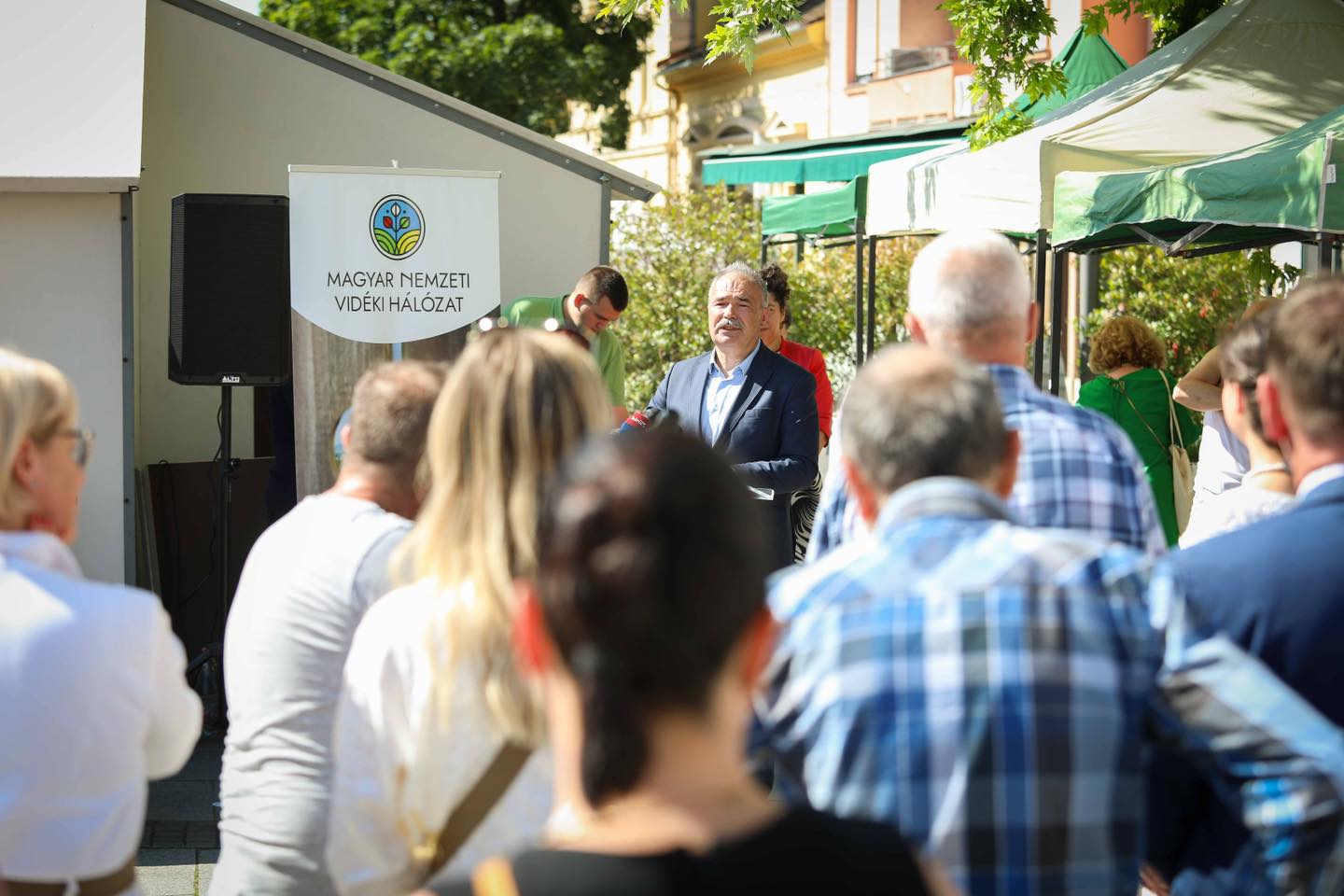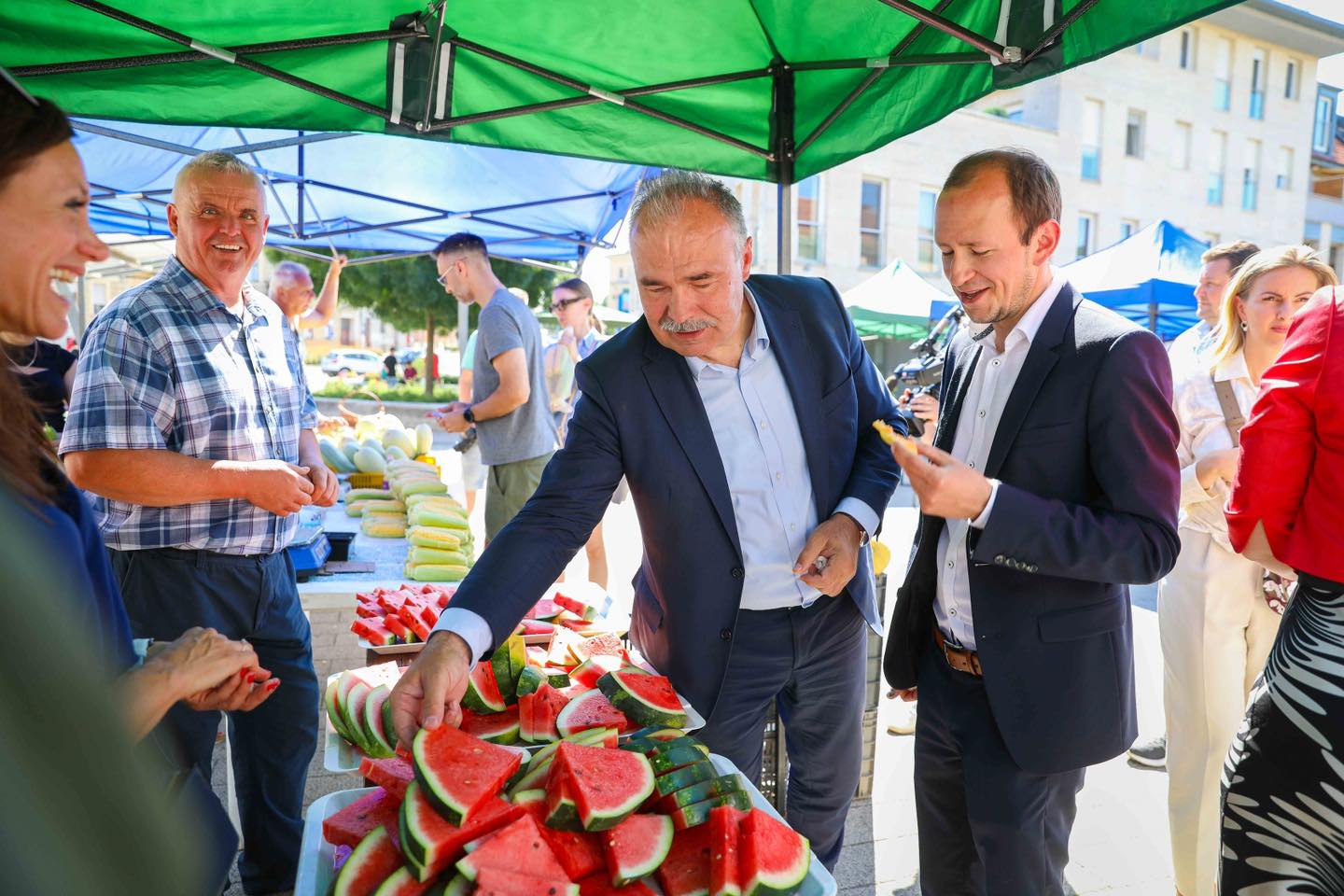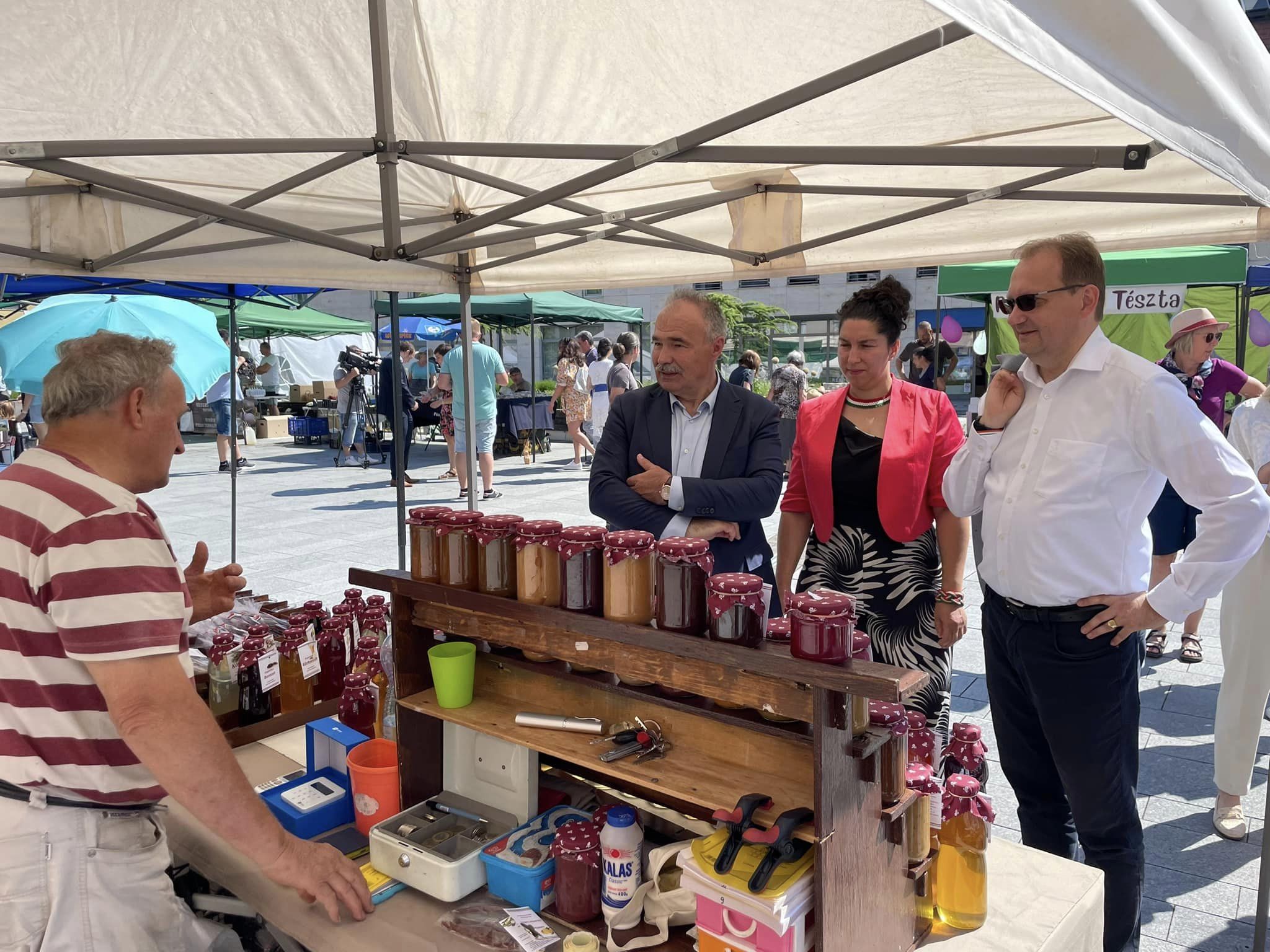Hungarian melons will be sold from this weekend, and producers expect good quality for the season.Continue reading
The Hungarian government is focusing on preserving the rural way of life and traditions, the Agriculture Minister said on Saturday in Pécs, a city in southwest Hungary.
In his welcome speech at a farmers’ and crafts market on Búza Square, István Nagy underlined that it is possible to build on traditional ways of life.

Photo: Fekete István, via Facebook/Nagy István
Today the market is much more of an agora, a community space. This is an added value, producers and buyers can meet, trust can be built, continued the Minister. He added that
local governments can apply for 100 million forints (EUR 260,690) of support for market development,
so that the market can become a truly modern agora, where products and culture can be together.
For small farmers who are willing to cultivate their gardens and maintain it for five years, we can give 5.5 to 6 million forints (EUR 14,338-15,642),”
István Nagy added.

Photo: Facebook/Nagy István
The politician stressed that the tables have turned, and while 10-15 years ago nobody thought that Hungarian farms and villages would have a future, today, 65% of people living on farms were not born there, but only moved there recently.
They are the ones who have revolutionized Hungarian gastronomy, whom we have handicraft products to thank for, and who have brought fruit processing back into fashion with local varieties appearing,
he emphasized.
According to Nagy, “the market must be made fashionable, playing a major role in food security;
products sold here have a much smaller ecological footprint than those from distant countries.”
He added that the market is a saving force in a world that is rapidly losing its identity, and that consumers can find quality, freshness, and diversity in markets that they cannot find in consumer culture.
Péter Hoppál, Fidesz MP and Government Commissioner for Culture and Innovation, said that in the last ten years the balance between urban and rural areas had been restored. In Pécs, at the Búza and Kossuth Square markets, goods are delivered directly from the producer to the consumer, and not through multinational companies, he underlined.

Government Commissioner on the right, with Agriculture Minister István Nagy on the left. Photo: Facebook/Dr. Hoppál Péter
The Hungarian government had set up the Hungarian Village Program with national funding.
Featured image: Fekete István, via Facebook/Nagy István